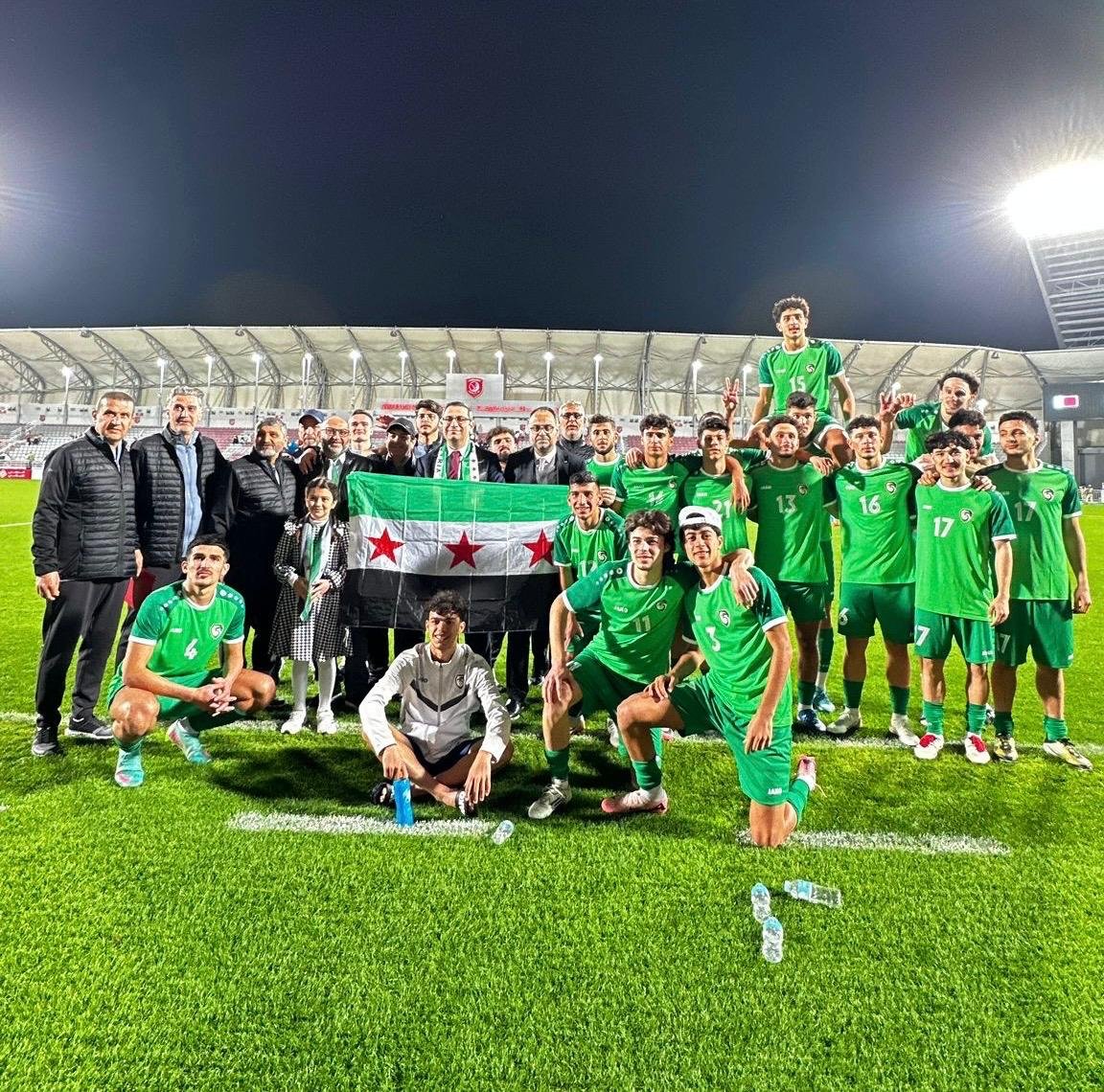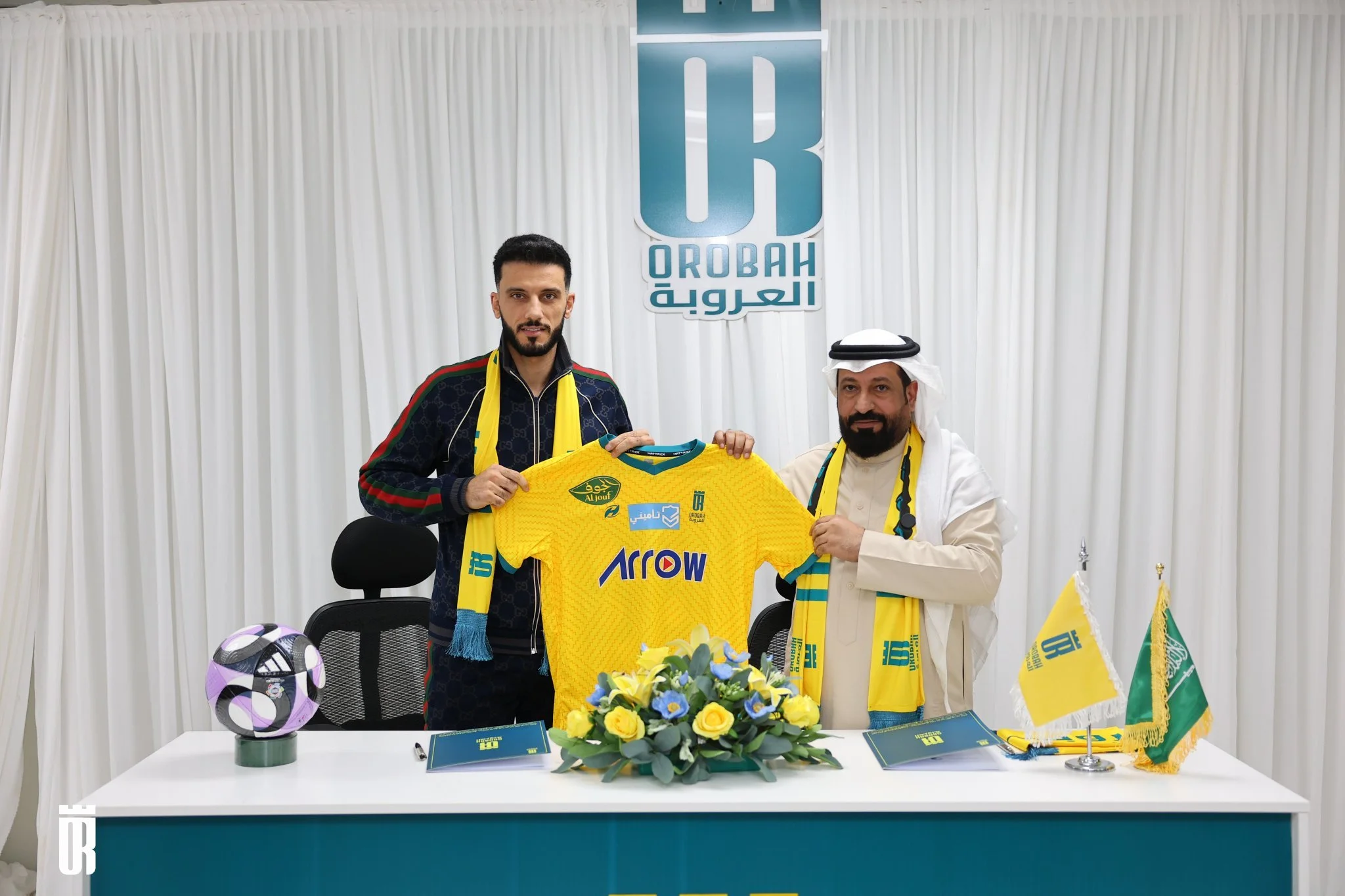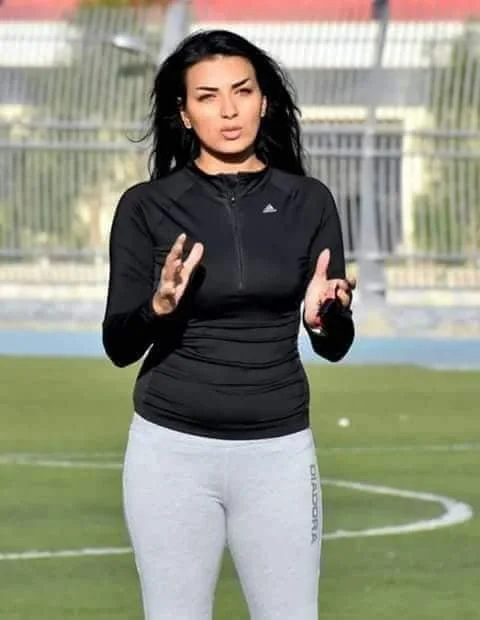In a match charged with history and emotion, Syria played its first official game since the fall of the Assad regime, opening its 2027 AFC Asian Cup qualifying campaign with a 2-0 victory over Pakistan at Prince Abdullah bin Jalawi Stadium in Al-Ahsa, Saudi Arabia.
The result, while crucial in footballing terms, carried far deeper significance for a nation attempting to write a new sporting—and national—narrative after decades of civil strife and authoritarian rule.
The opener came from 22-year-old Ahmad Faqa, the rising forward from AIK Stockholm, whose calm finish midway through the first half set the tone for Syria’s return. But it was the second goal that brought the crowd and perhaps a whole country—to its feet.
Veteran striker Omar Al Somah, now 38, scored in the 56th minute to seal the win. The goal was far more than just a statistic: it was the latest chapter in a remarkable personal and national journey. Al Somah had once retired from international football in protest at the outbreak of the Syrian Civil War in the early 2010s. Years later, he returned to guide the Qasioun Eagles to the brink of history during the 2018 World Cup qualifiers—a run that saw Syria reach the continental playoff, but losing to Australia in a dramatic fashion.

A new beginning with a new uniform, a new anthem, but same old scorer. Omar Al Somah and his Syrian teammates celebrate (Photo courtesy: Syrian Football Association)
Now, with his goal against Pakistan, Al Somah has become a living symbol of Syria’s resilience and rebirth. His strike came just weeks after he became the all-time leading foreign scorer in Saudi Pro League history with 150 goals, adding yet another accolade to a storied career.
“We’re not just here to play football,” Al Somah told reporters post-match. “We’re here to show the world that Syria stands again stronger, united, and with hope.”
It was a night of cautious optimism, both on and off the pitch. For the first time in years, the new Syrian flag waved without political overtones, and the new anthem was sung with a sense of genuine pride rather than fear. The team’s performance—disciplined, sharp, and emotionally charged—suggests that under new leadership, Syria could once again be a force in Asian football.
Next up for Syria: a trip to face Afghanistan, as the AFC Asian Cup qualification continues. But whatever happens on the field, March 29, 2025, will be remembered as the day Syrian football—and perhaps Syria itself—found a new beginning.
The Syrian League resumes April 10, 2025, as all football activities, including women’s and youth divisions, return in a new era for the country.
Syria U20 debuted new kits post-Assad era, with two games, vs. Uzbekistan & Qatar. Overthrowing a regime is fast; football DNA change takes time.
Goals from Ahmad Faqa and veteran Omar Al Somah mark a triumphant and symbolic return to international football for Syria after regime change.
The Syrian League resumes April 10, 2025, as all football activities, including women’s and youth divisions, return in a new era for the country.
Syria U20 debuted new kits post-Assad era, with two games, vs. Uzbekistan & Qatar. Overthrowing a regime is fast; football DNA change takes time.
Syrian striker Omar Al Somah, SPL’s all-time top scorer, returns to Saudi football with Al Oruba after scoring 47 goals at Al Arabi in Qatar.
A special interview with Maha Janoud, Syria's pioneering female football coach, exposes corruption under Assad's regime and shares her journey from national player to global influence.
Brahim Diaz ditched Spain for Morocco, while Mahmoud Dahoud joined his birthplace, Syria. Nationality switching is not new in international football, but it is the hottest trend currently.
The 2023 AFC Asian Cup in Qatar round 16 is a wrap. Along with some surprises, the quarterfinals are set and ready.
Last week, a rare derby day took place in Homs, Syria. It was the first time it had happened since 2017. Nadim Rai and Oliver Ricken with a perfectly articulated photographed moment of the event.
A not-for-profit organization, led by students, claims to be a “social movement” and focuses on football. This is Passion FC, and this is their story.
Despite Syria and Israel both playing behind closed doors - this week, in both competitions, it was all about the fans. From Aleppo, to Tel Aviv and via Jerusalem. Middle Eastern football belongs to the fans.
The Syrian Premier League is the first Middle Eastern league to return from the pandemic break, as al-Wathba hosted Foutoua on Thursday.
After leagues around the world have restarted their games. In the Middle East, the leagues' recovery from COVID-19 can tell a lot about the region.
The Coronavirus has struck hard on world football in the past week, and the Middle East is no different. A full list of the region’s countries and the impact COVID-19 has on them.
The Latakia Derby, Tishreen against Hutteen, known as one of the middle east's most fierce rivalries, with two fanatic sets of fans. Earlier this week it took place as part of the city's 'Love Festival'. It didn’t feature a lot of love between the two sides, but it did shed light on a greater phenomena: Syrian football, that lives on under severe circumstances.
In a last minute twist, Syria ended their Asian Cup journey, while Palestine finished in third place in Group B. Yet, Palestine didn’t qualify yet to the next stage.
Jordan, Syria and Palestine made the second day of the Asian Cup interesting. The Levantine teams were never exciting like they are today.
While the tournament will take place in the Emirates, 12 teams from the Middle East will try to conquer Asia and win the tournament. This is the Western Asia team-by-team preview for the Asian Cup.
Syrian national heroes are returning to club football and shining.
A summary of the world's hottest region: the Middle East and its Arab football renaissance.
The ambivalent and complex discussion about the Syrian shocking football success, on their rod to Russia. Will Assad play Trump for a meeting with Putin?
Natan Odenheimer sheds light on recent Syrian success in football and checks on Bashar Al-Assad’s 4-3-3 formation, while his national team writes a (un)surprising renaissance.

















Goals from Ahmad Faqa and veteran Omar Al Somah mark a triumphant and symbolic return to international football for Syria after regime change.